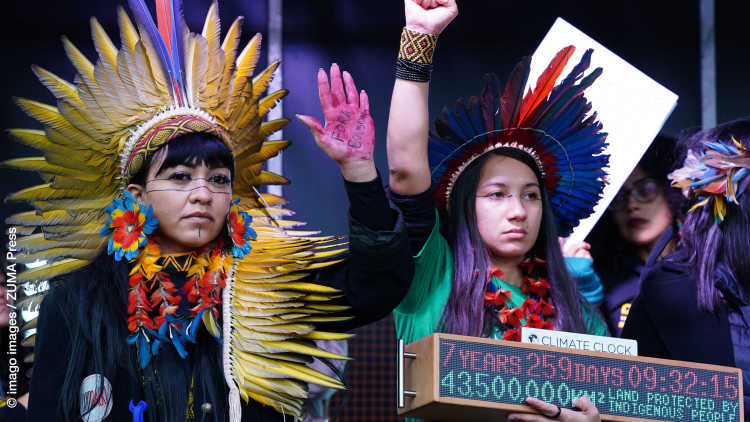- Home
- Events
- Conferences and Workshops
- Climate Obstruction in Brazil after Bolsonaro: Opponents to Climate Protection and how to deal with them
Panel Discussion
Climate Obstruction in Brazil after Bolsonaro: Opponents to Climate Protection and how to deal with them
Date
03/09/2024
Start
05:00 p.m. (CEST)
End
06:15 p.m. (CEST)







Climate obstruction, including deliberate actions to deny scientific facts and delay policy action, as well as structural impediments, constitutes a significant challenge in many parts of the world. In Brazil, this phenomenon was markedly evident under the administration of former president Jair Bolsonaro (2019–2022) and continues to present challenges under the current leadership of President Luiz Inácio "Lula" da Silva. Bolsonaro’s administration prioritised economic growth, often at the expense of environmental protection. Policies favoured agribusiness, logging, and mining, including legal and illegal activities, leading to both a dramatic increase in deforestation rates in the Amazon rainforest, a critical global carbon sink, but also affecting other biomes. Environmental legislation was dismantled, and the livelihoods of Indigenous and local communities was endangered.
Lula, who took office in January 2023, has pledged to reverse the environmental damage done under Bolsonaro and to reassert Brazil’s commitment to combating climate change. Lula’s administration has promised to prioritise environmental conservation, restore funding to environmental agencies, and strengthen protections for Indigenous lands. However, challenges remain, as the presence of powerful agribusiness players and transnational economic interests combined with a lack of finances and of coordination among governmental bodies at the local and national levels continue to pose obstacles to effective climate action. This extends to the conflict between support for exploration of oil and gas in Amapá State by the Lula administration and its opposition by other state agencies, including the Brazilian Department for Environmental Protection.
The GIGA roundtable, including experts from Rio de Janeiro State University, the University of Hamburg, and the GIGA, addresses the current state of climate obstruction in Brazil and how different actors from the local to the international level have responded to it over the last several years. We will discuss what challenges remain for Brazil, and what we can learn from Brazilian responses to climate obstruction.
Panelists:
Dr. Ana Paula Balthazar Tostes is Jean Monnet Chair of the European Union (JMC) and Professor at the Institute of Social and Political Studies (IESP-UERJ) and the Department of International Relations (DRI) at Rio de Janeiro State University.
Dr. Carlos Milani is a Professor of International Relations at Rio de Janeiro State University’s Institute of Social and Political Studies (IESP-UERJ) and Coordinator of the Interdisciplinary Observatory on Climate Change (OIMC).
Dr. Eduardo Gonçalves Gresse is a Senior Researcher at the Centre for Earth System Research and Sustainability at the Cluster of Excellence CLICCS, University of Hamburg.
Moderator:
Dr. Anna Fünfgeld is a Postdoctoral Researcher at the University of Hamburg’s Chair for Social Dynamics and Societal Transformation and an Associate Researcher at the GIGA.
Organiser
Address
GIGA, Neuer Jungfernstieg 21 (room 243), 20354 Hamburg, Germany, and online, Hamburg
Language
English















